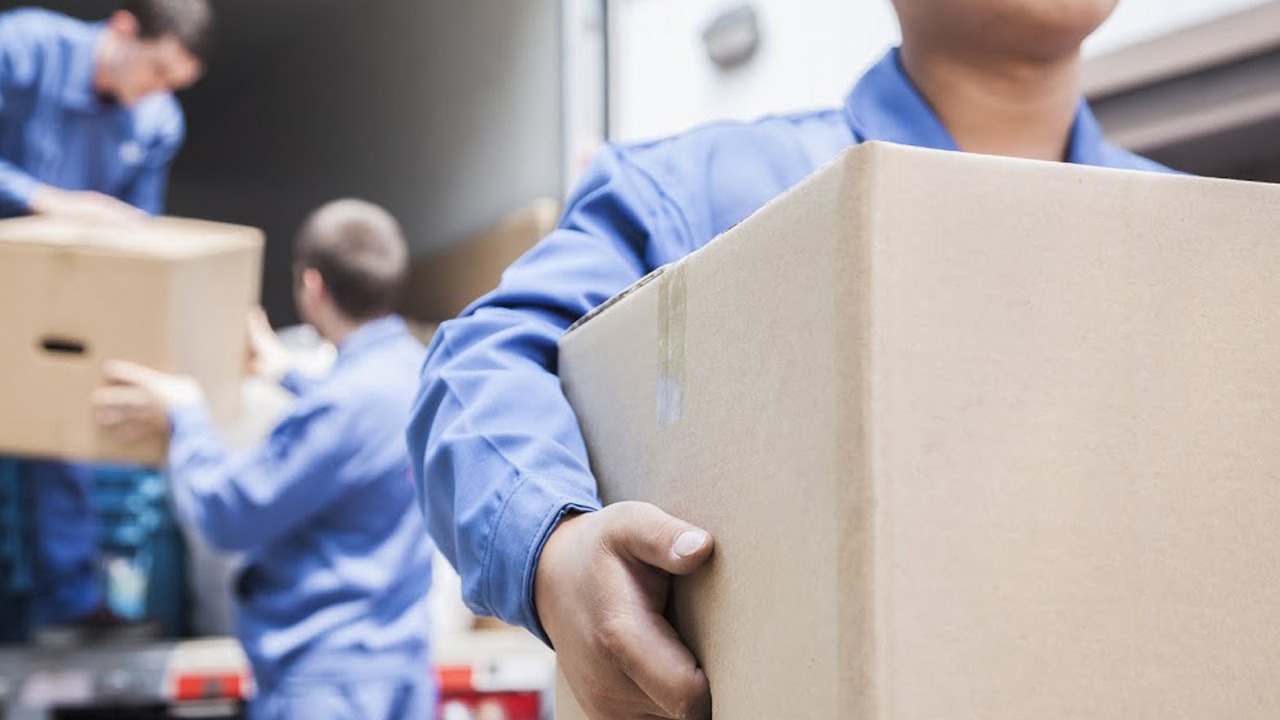
This is a custom HTML / JavaScript Element
In order To See Your Custom HTML/JavaScript Code in Action You Must Click On The Preview Page Button, Your Code is NOT going to be active in the edit mode
Successful moves always start with preparation. So, before the movers arrive with the moving truck, go through this list and be ready. Don’t wait until the last minute to get organized! Moving preparation doesn’t have to be complicated or expensive – there are a number of things that can be done ahead of time, like creating a packing plan or setting up a storage area for your belongings.
The best way to prepare for a stress-free move is by anticipating what might happen – this will help minimize stress and make the process more manageable. Before the professional movers show up with the moving truck, it’s important to make sure that you’ve done everything you can to prepare for their arrival.
Here are nine things to keep in mind:
1. Make a Moving Plan

First have a moving budget. Then, create a timeline of when everything will happen and stick to it as closely as possible. Estimate how much stuff you have to move. How many boxes it may take to pack fragile and non-fragile household items. When to put in a change of address, turn on utilities at the new location and updating your driver’s license. A packing schedule can be the best thing and an excellent way to start the moving process. This way everyone knows what to expect and there are no surprises when the time comes.
2. Have A Specific Plan for Your Kids and Pets on Move Day
Moving day can be a hectic time for both young children and pets. When packing up to move to another location, it is crucial to explain to your kids the importance and hard work of packing up your possessions into boxes and the reasons for the move. Encourage your kids to become involved early in the packing process. Make sure that you have made plans to keep every family member happy and safe.

Pack as much of your pet's food and toys as possible, and make sure they are comfortable. Have a water bowl handy on move day. If you're not using an animal sitter, make sure you use something to contain or isolate them in one area of your house on moving day. Do not let them roam freely as open doors and windows could make it easy for them to get out and get lost.
3. Review Your Moving Contract

Moving is a big commitment, and you don't want to regret your decision when the time comes. To make sure everything goes smoothly, review your moving contract carefully before the movers arrive. Make sure you understand what's included and what's not, and that you're comfortable with the terms. For instance, is professional packing service included or are they just moving to the truck and out of the truck? You don't want any surprises on moving day!
4. Coordinate with Your Neighbors!
A big move can be incredibly disruptive, so try to get along well with your neighbors during this process too. Extend them courtesy by letting them know when trucks will be at your home, so they are not caught off guard or have an important service scheduled for their property. You might want to make sure they have your contact information in case something gets left behind or there is a problem while the home is still in your possession. It'll go much smoother that way!
5. Get Rid of Everything You’re Not Taking Along

If you’re thinking of hiring full-service movers, it’s important to know what you can and can’t get rid of. You don’t want to waste money on items that won’t fit in the truck or that are too big or heavy to move. Here are some guidelines for getting ready for your move:
-Consider a garage sale or yard sale to eliminate unwanted items and to generate some extra cash.
-Remove all furniture, pictures, mirrors, plants, and any other large objects from the room. These things will take up space and reduce the amount of usable floor space in the truck. Use bubble wrap on glass, mirrors, and breakable items.
-Professional packers will tell you to pack everything you plan on moving into boxes or containers that are at least 18 inches wide by 24 inches long by 36 inches high. This will make it easier to load into the truck and less likely that something will fall off during transit.
-Label boxes with its contents so you know where everything goes when the moving crew arrives. This will also help avoid any confusion during unpacking when everything is already packed up and ready to go!
6. Gather and Move Your Small Valuables Yourself

If you can, it’s always better to move your most important things yourself. This includes high value things like jewelry, watches, cash, credit cards, pictures, important documents, and any other valuable objects. It’s not a difficult task and it will save you time and worry in the long run. Here are some tips for moving your valuables and small items:
-Sort your items into categories based on their importance. This will make the process easier and help you avoid making a mistake.
-Make a list of everything needing this special care. This will keep you organized and avoid any unnecessary confusion.
-Take photos of your valuables or sentimental items as proof of their current condition. Best things is to keep these photos safe in the event that you will need to make an insurance claim after the move. Hopefully you will not have to.
-Label each box on the top and the sides of the box with its contents. Then you will know what is what and where you want it to be during the move. This will also help avoid any confusion during unpacking!
7. Start Packing as Soon as Possible
Depending on where you are moving, you may want to start packing as soon as possible in order to avoid any last-minute surprises. While it's not always possible, it's always a good idea to plan your move well in advance in order to avoid any wasted time and stress.

8. Prepare your space so the movers can easily get around. This will help the movers get started faster.
Make sure all furniture is cleared of any cords, wires or hazardous materials so they don't get in the way. If you have a lot of large pieces of furniture and heavy items, ask the movers to bring a dolly or cart to move them. Make sure your floors are clean and free of any clutter or debris so they can easily be swept. For safety reasons you want to have a clear path especially for moving heavy furniture and large items. Finally, make sure all windows and doors are open to allow fresh to circulate and for the professional moving company to have easy access in and out.
9. Prepare Your Appliances
Before your movers arrive, it is important to prepare your appliances for transport. This means turning off all appliances, disconnecting power cords and moving them as far away from walls as possible. It is also a good idea to pack any fragile items in boxes or wrap them in bubble wrap or blankets. Finally, label all boxes with the appliance's name and the room where it will be stored.

Whether you are moving into a new house or apartment, you will need to take some time to prepare your appliances before the movers arrive. Many people neglect this step. This includes disconnecting and properly packing any appliances that you will be taking with you. Here is the same information but in a quick list format:
1. Disconnect all appliances from their power sources. This includes unplugging them from the wall outlet and/or turning off the gas supply if applicable.
2. If possible, clean out your appliance before packing it up. This will help prevent any dirt or grime from transferring to your new home.
3. Properly wrap and cushion your appliance using blankets, towels, or bubble wrap. This will help prevent any damage during transit.
4. Label each appliance with its corresponding name and/or model number.
Last Thing
Stay positive. This will help to ease the transition. And remember that it’s important to take care of yourself during this stressful time – give yourself plenty of rest, eat healthy foods and drink plenty of fluids, and let someone know if you need support along the way.
 Add Row
Add Row  Add
Add 



